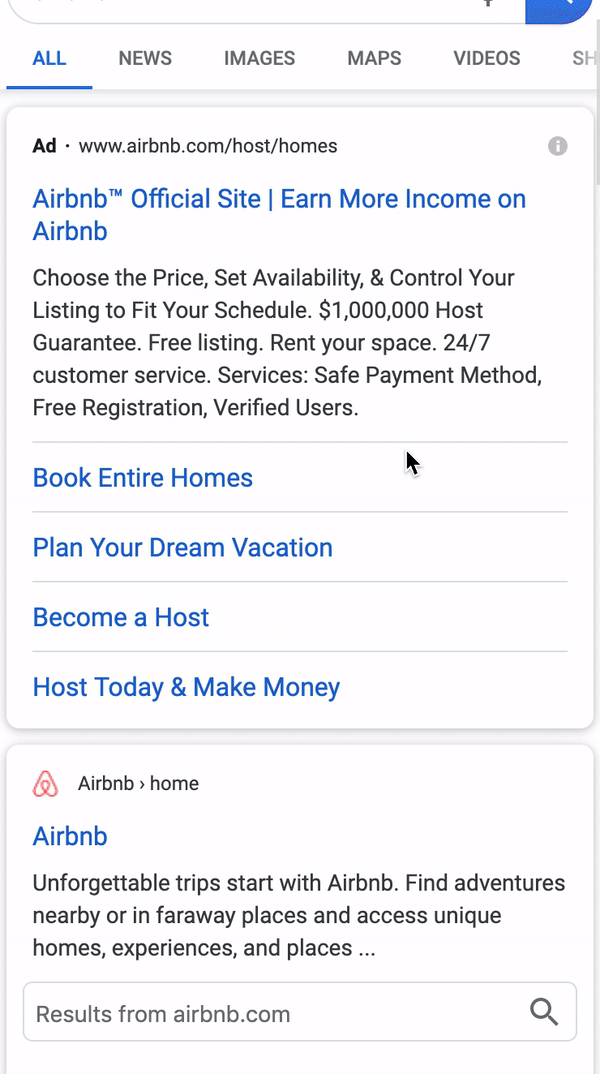
Related Questions on Search
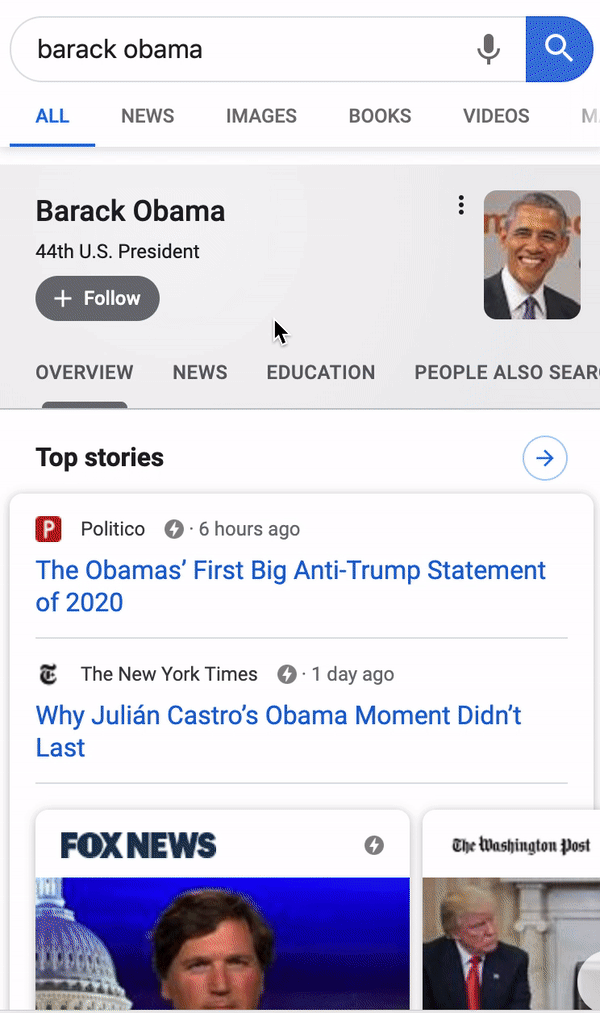
Related Searches
Context –––
I joined Google as an APM intern in Summer 2019 to work on Explore Search, a team that focuses on helping users understand every topic they query to the point of infinite exploration and serendipitous discovery.
Search has changed to be much more than just presenting users with web results. The product has moved to improve upon peaking a user’s curiosity by surfacing information from Google's wealth of knowledge to allow a user to learn more about the query they had inquired about. The focus of Explore Search is to help users deep dive into a sea of information to then only come up to the surface when the user feels they’ve reached the depths of what they feel is satisfactory.
These “frictionless user journeys” is what we aim for in order to organize the wealth of information available online in a way that is not complex or overwhelming to the user. We aim for more meaningful time spent on Search than continuously going back and forth on pages to find what you’re looking for. We do this by presenting the user with results that make the most sense to their initial query while also presenting related information they should be aware of and look into. These "next steps" replicate what a user might see on the next page if they manually type in a new query.
By surfacing related searches earlier in a user’s journey, we intend to inform users of next steps in their journey faster and with less friction. We do the hard work to ensure users can indulge more and scroll less. In practice, users encounter useful, informative, and accurate previews of results for follow-up queries. As a result, users spend less time waiting for result pages to load and instead view previews of next steps to decide whether or not a new query is worth taking the plunge.

Related Questions on Search

Related Searches
In order to present users with an optimal search experience, a lot of work needs to happen on our end. We first need to understand how users are currently interacting with the product. Given Search is a product that’s been around since the 1990s, you can imagine the wealth of data that is available to us. Put simply, we try to understand all of this data in a way that makes most sense to the vision we have for Search. On Explore, we try to understand how much friction exists in today’s search journeys. Are users actually getting to useful information faster? How are we prioritizing the information on the results page in relation to what the user queried? In order to answer these questions, we plan, strategize, and experiment.
In order to plan what needs to be done, we think about what we’ve already tried before and what makes the most sense for Search in 2019. Our focus has been primarily on frictionless next steps. So the question around “what can we do to get users to better information faster?” is constantly on our minds. With that said, we plan feature launches accordingly to ensure that every effort we put into motion is aligned with our long-term vision for the Search product -- not to mention aligned with Google-wide initiatives.
Strategy comes in when we start to think about approaching ambiguous problems with incremental solutions. We ask questions like: how can we achieve this in 2-3 less steps? What has already been done before that we can repurpose / piggy back on? Are we doing the right thing for users in this current moment in time? When it comes to product strategy, a lot of work revolves around building incremental features that will get us to the gloriously elevated state, where Search is a source of endless inquiry with no dead ends.
These incremental steps that we plan and strategize often need to be validated. We gather research both quantitatively and qualitatively to understand that our current plans are in the best interest of what users perceive as either their main pain points or sources of delight.
Experimentation is at the heart of how we validate ideas on Search and it is most helpful in understanding the impact an idea will have on the product as well as clear up decision factors between many different avenues to pursue. Planning an experiment comes with its own challenges, one of which is how to decide whether or not our experiment will test the right thing. This means we have to go back to our initial product vision, understand what success looks like, and then plan out the key metrics we intend to track to ensure we’re trending closer to that vision.
Another key part of what we do on Explore is scale ideas. Given the billions of users that interact with Search every day, we have to keep in mind the many different use cases for billions of queries. If we’re thinking about organizing information for local queries e.g. “restaurants near me in new york city,” we also have to think about organizing information for local verticals like services, hotels, leisure. The way we do this is by devising a framework around the problem we are trying to solve. By creating a one-to-many solution, we are tackling the many different types of queries with one scalable model.
My Projects –––
On Search, you're able to get instant answers which typically come from two different sources. If you issue a query like "barack obama height," you'll get a sanitized answer from Google's Knowledge Graph given Google is confident in surfacing accurate information from the known entity "Barack Obama." Other answers are scraped from the web – these answers are condensed in a way where they are still easy to scan, but the third-party source is attributed accordingly.
I worked on introducing answers within Explore Search, ensuring that users don't have to manually refine their query to get to the answers they really want. I worked on ensuring that exploratory queries have accurate and useful answers as well as useful previews of what a new query space would be.

I looked into how Search journeys are becoming more actionable, where a large number of users are trying to complete a task on Search vs just browsing or looking for information. I planned the strategy and execution of actions for Explore so that when a user issues a query, we can help them surface the most useful actions to improve their search journeys.
“Google is no longer a company that just helps you find answers. Today, Google products also help you get stuff done.”
- Sundar Pichai, Google I/O 2019
Throughout the summer, I helped the team scope out exploratory queries that we can treat as actionable and help organize information in a way where we’re helping the user complete their next steps effectively without overloading them with too much information.

Actions on Google Assistant
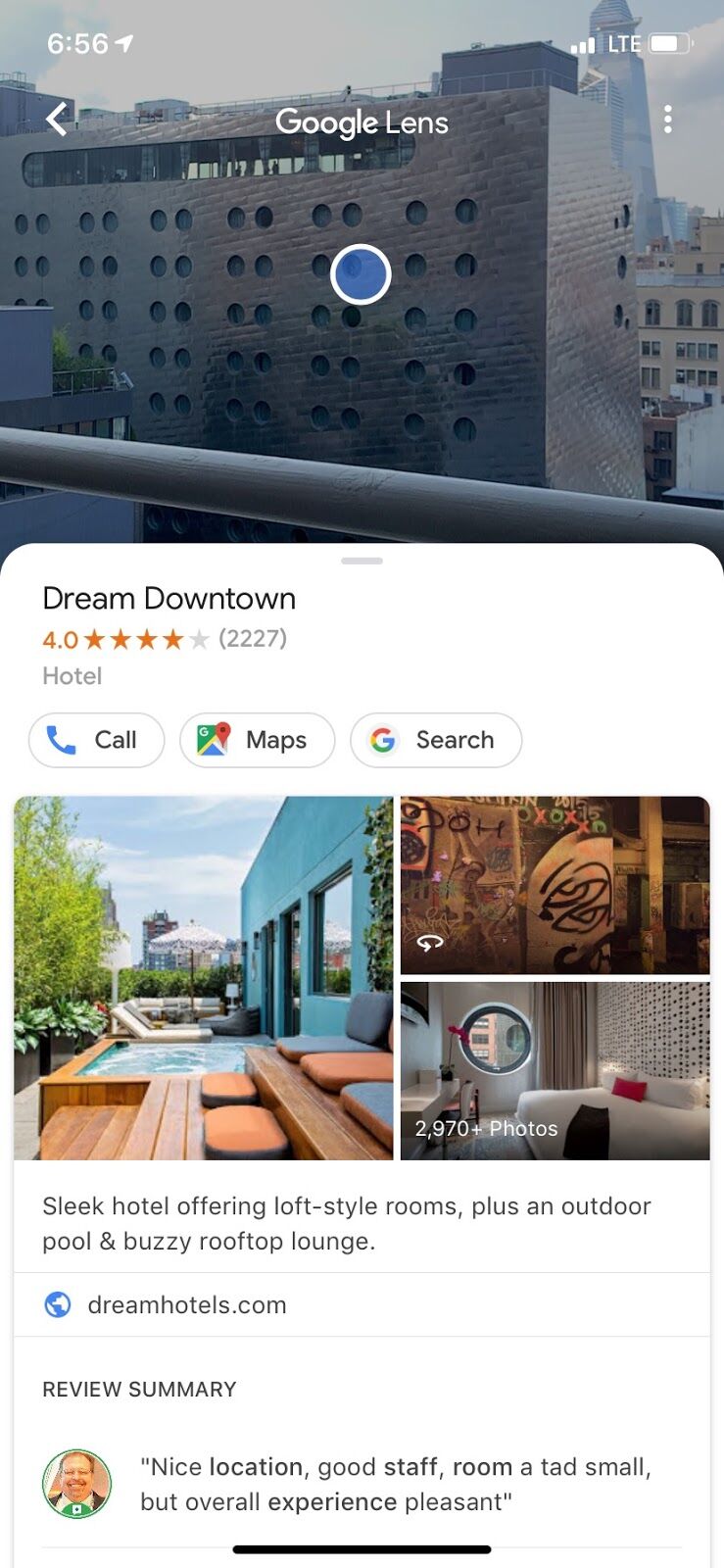
Actions on Google Lens
Alongside the actions strategy, I worked with the team on scoping out how localized information can contribute to on-going work on Explore Search. Local previews provide users with useful information on how to interact with places in the real world. We designed local previews specifically within the Explore Search framework and spearheaded planning for live experiments.
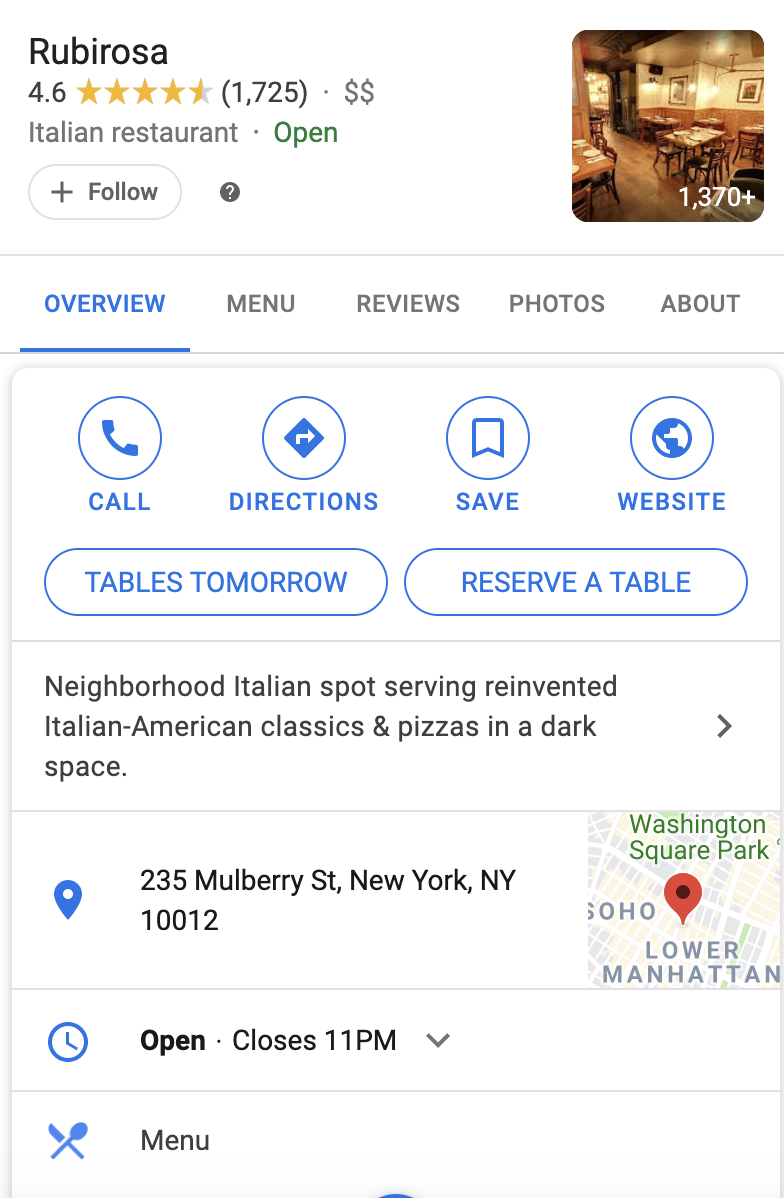
Local Placesheet
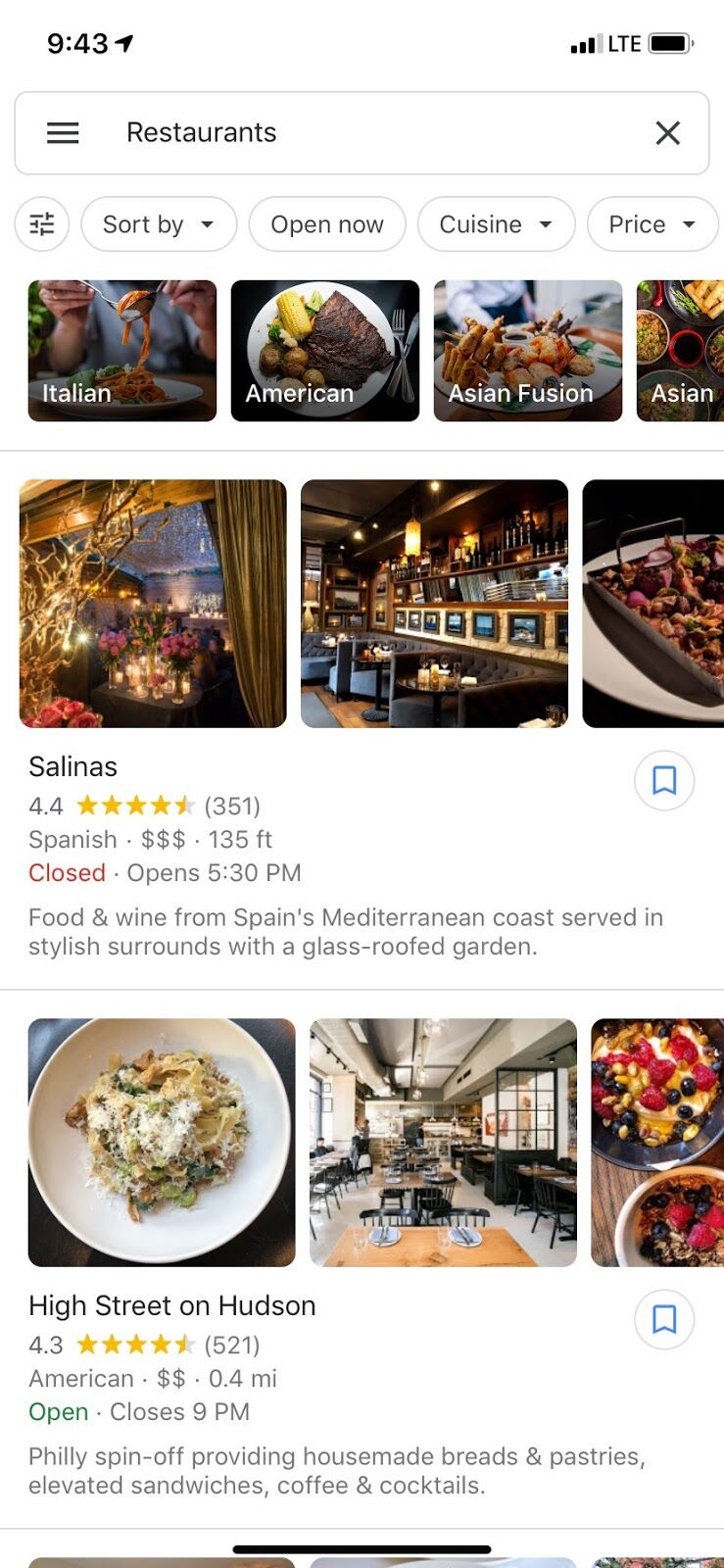
Local Immersive
Next Steps –––
As mentioned, the magic of Search is in its ability to provide users with instant information. There’s still a lot of unanswered questions regarding the preservation of the web ecosystem, the organization of information for pressing topics like gun control or climate change, the ranking of results amongst ads, the prioritization of result previews, and more.

Learn More –––
Nick Fox, Vice President of Product & Design, Search and Assistant
Ben Gomes, SVP, Search, News and Assistant